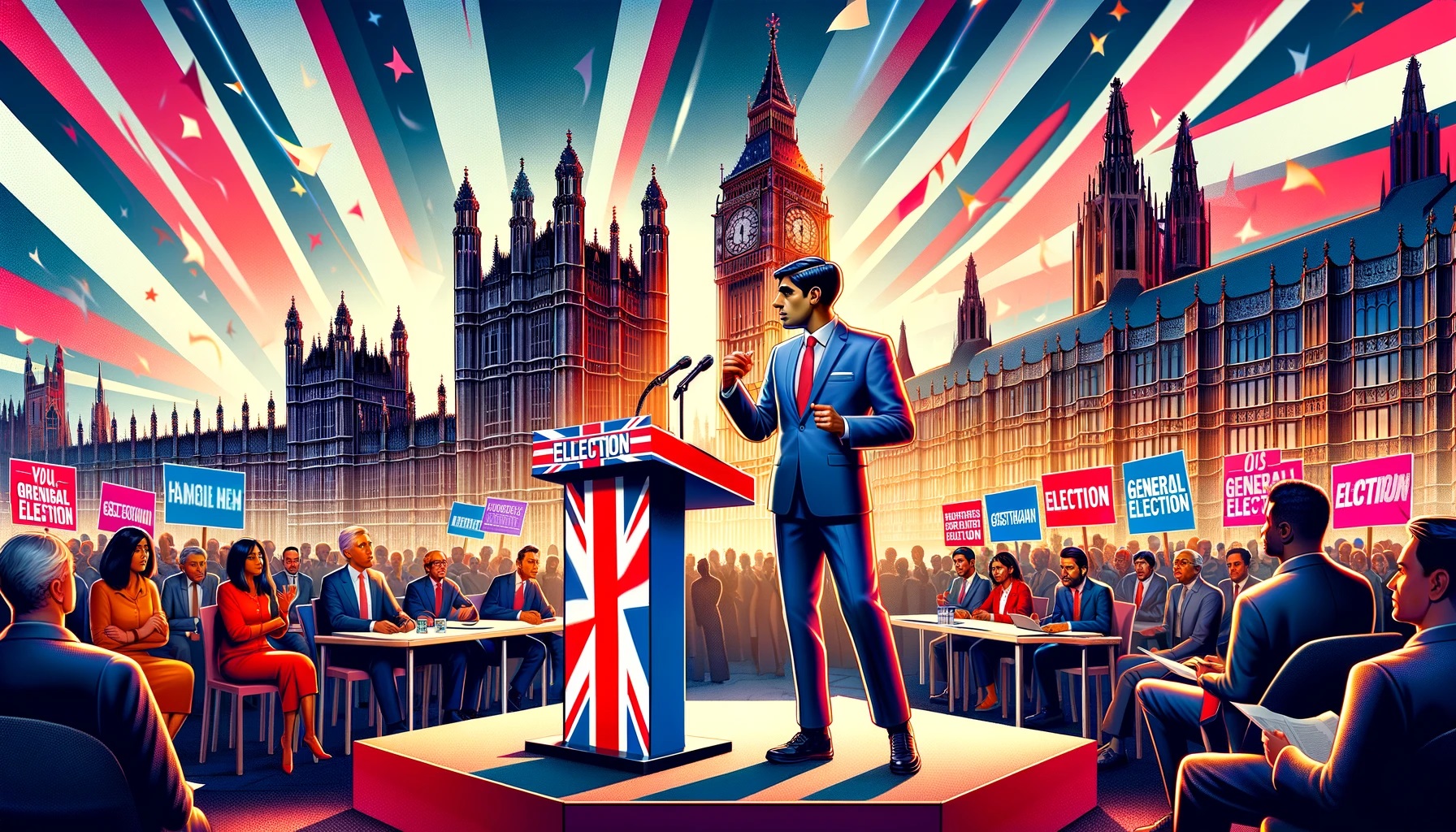In an unexpected move, Prime Minister Rishi Sunak has called a snap general election to be held on July 4, 2024. This announcement has sent shockwaves through the political landscape of the United Kingdom, prompting widespread speculation and debate about the potential outcomes and implications of this decision.
The Announcement
On May 22, 2024, Prime Minister Sunak made the surprise announcement, advising King Charles III to dissolve Parliament and schedule a general election. This decision comes at a time when the Conservative Party, under Sunak’s leadership, has been grappling with internal challenges and external criticisms (Wikipedia).
Reasons Behind the Decision
Several factors may have influenced Sunak’s decision to call for an early election:
- Political Instability: The Conservative Party has faced significant turmoil in recent years, with leadership changes and high-profile scandals. Sunak’s leadership, following Boris Johnson and Liz Truss, has been marked by efforts to stabilize the party and restore public confidence (Wikipedia).
- Economic Challenges: The UK economy has been under pressure, with rising inflation, cost-of-living crises, and post-Brexit uncertainties. An early election could provide a mandate for new economic policies and reforms aimed at addressing these issues.
- Strategic Timing: By calling a snap election, Sunak may aim to catch opposition parties off guard, reducing their preparation time and leveraging any short-term gains in public support for the Conservative Party.
Reactions from Political Parties
The announcement has elicited varied reactions from across the political spectrum:
- Labour Party: Led by Sir Keir Starmer, Labour has welcomed the opportunity to contest the election, focusing on issues such as healthcare, social justice, and economic reforms. Labour is expected to campaign vigorously to capitalize on the Conservative Party’s recent challenges (LifeLine Media).
- Liberal Democrats: The Liberal Democrats, under Ed Davey’s leadership, have also expressed readiness for the election. They aim to position themselves as a centrist alternative, advocating for policies on education, climate change, and civil liberties.
- Scottish National Party (SNP): The SNP, with John Swinney as their new leader, will likely focus on Scottish independence and regional issues, seeking to strengthen their position in Scotland.
Key Issues at Stake
The upcoming election will center on several critical issues that resonate with voters across the UK:
- Economic Recovery: Strategies to address inflation, cost-of-living pressures, and post-Brexit economic adjustments will be pivotal in campaign agendas.
- Healthcare: The National Health Service (NHS) and its capacity to handle ongoing challenges, including the aftermath of the COVID-19 pandemic, will be a major focus.
- Immigration and National Security: Policies on immigration control, national security, and international relations will also be key topics of debate.
- Climate Change: With growing environmental concerns, climate policies and green energy initiatives will play a significant role in shaping voter preferences.
The surprise general election called by Prime Minister Rishi Sunak has set the stage for a dynamic and potentially transformative period in UK politics. As parties prepare their campaigns and voters brace for pivotal decisions, the outcome of the July 4 election will have lasting impacts on the nation’s future direction. Stay tuned for further developments as the political landscape continues to evolve in the lead-up to the election.
For more detailed coverage and updates on the election, refer to reliable news sources such as Euronews and The National.





